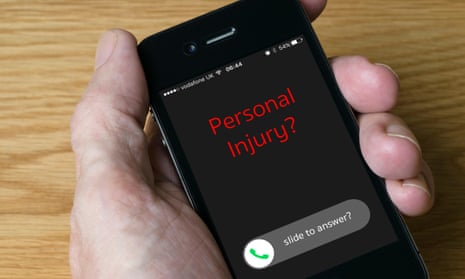Business directors could be personally fined up to £500,000 if they fail to prevent nuisance calls, under a government consultation on the issue.
While there has been a big recent increase in the fines issued to companies – last year one was fined £400,000 for making almost 100m automated calls in 18 months – there is concern this has not been a sufficient deterrent.
The data protection watchdog said that in several cases directors had escaped fines by declaring their companies bankrupt and starting again under a different name.
The company fined £400,000 in 2017 was placed in voluntary liquidation, leaving the Information Commissioner’s Office (ICO) to recover the fine through liquidators and insolvency practitioners.
ICO figures show that of the £17.8m in fines issued for nuisance calls since 2010, it has recovered just 54% of this, as companies went into liquidation.
A plan mooted by the government 18 months ago to increase the deterrent by making directors personally responsible for fines of up to £500,000 is being consulted on, the Department for Digital, Culture, Media and Sport (DCMS) said.
The new fines could be levied on top of a fine directly imposed on a company, bringing a theoretical maximum penalty of £1m for the worst offenders in an area regularly shown to cause annoyance and distress to householders, especially older people.
The consultation closes in August. If the measure goes ahead, it would involve a proposed amendment to the privacy and electronic communications regulations guidelines.
Margot James, the junior DCMS minister, said: “Nuisance calls are a blight on society and we are determined to stamp them out. For too long a minority of company directors have escaped justice by liquidating their firms and opening up again under a different name.
“We want to make sure the information commissioner has the powers she needs to hold rogue bosses to account and put an end to these unwanted calls.”
Steve Wood, the deputy information commissioner, said the organisation had sought a change to the law. “These changes will increase the tools we have to protect the public,” he said.
Ofcom, the telecommunications regulator, has estimated that Britons were subjected to 3.9bn nuisance phone calls and texts last year. However, the number of complaints about the issue has fallen in recent years amid other changes to regulations, such as forcing companies to display their number when calling customers.
In 2015, a law change made it easier for the ICO to fine miscreant companies, removing a clause obliging the office to prove a company caused “substantial damage or substantial distress” through their conduct before action could be taken.
In the first year since the change was made, the total amount of fines issued by the ICO increased to £2m, from £360,000 seen in the previous year.
The fines range from a £5,000 penalty issued to the Labour MP David Lammy, who made recorded calls as part of an election campaign, to a £350,000 fine for a company that made 40m illegal calls trying to sell payment protection insurance.








